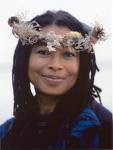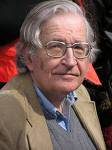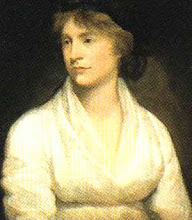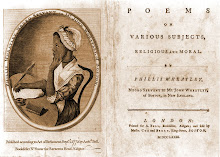30 October 2008
The Significance of the Journey in 20th Century Middle Eastern Literature
When most people think of a journey, they think of traveling and experiencing various cultures. In Naguib Mahfouz’s The Journey of Ibn Fattouma, the journey represents much more. Qindil, the protagonist, travels on a simultaneous inner and outer journey. Superficially, he is experiencing new people, beliefs, and cultures, but he is also changing as the journey continues. He is evolving into a new man with every experience; he is traveling toward perfection.
Initially, Qindil explains, “During his discourse he [Sheikh Maghagha al-Gibeili] talked about a certain ancient traveler…He spoke so liberally that I lived in my imagination the vast lands of the Muslims, and my own homeland seemed to me like a star in a sky crammed with stars” (5). From these quotes, the narrator is foreshadowing the never-ending journey of Qindil; it’s like the vast celestial universe. The Sheikh recalls his own journey and his regrets. The Sheikh states, “The circumstances of life and family made me forget the most important objective of the journey, which was to visit the land of Gebel…It’s as though it were the miracle of countries, as though it were perfection itself, incomparable perfection” (6). From these lines, the audience can sense that Qindil is intrigued and mesmerized by the description. Qindil will not be stopped by “the circumstances of life and family.” He will reach the most important objective; he will see Gebel.
Next, through Qindil’s responses and questions, the audience is privy to his thought processes. He has a desire to explore, to see, and possibly the propensity to evolve. The Sheikh continues describing his personal journey. He recalls, “I have never in my life…met a human being who has paid it a visit, nor have I found a book or manuscript about it [Gebel]...It’s a closed secret” (6). From this quote, the audience assumes that Gebel represents the obscurity of knowledge. The narrator writes, “And like any closed secret it drew me to its edge and plunged me into its darkness. My imagination was fired. Whenever I was upset by a word or action, my soul fluttered around the land of Gebel” (6-7). From these quotes, the audience becomes aware of the continual foreshadowing.
The rising action of the novel is preparing the audience for Qindil’s upcoming travels. Losing Halima Adli at-Tantawi is the catalyst Qindil needed to journey and appease his soul and his desire. The narrator writes, “An inner voice told me that I would be the first human being to be given the chance of touring the land of Gebel and making known its secrets to the world” (22). The true journey is his journey into the exploration of Islam.
Furthermore, Qindil’s journey into Islam is foreshadowed in the first few pages. Qindil asks, “If Islam is as you say it is, why are the streets packed with poor and ignorant people?” (4). The Sheikh answers, “Islam today skulks in the mosques and doesn’t go beyond them to the outside world” (4). As a result, Qindil remarks, “Then it is Satan who is controlling us, not the Revelation…I am upset by injustice, poverty, and ignorance” (4, 7). From the dialogue, the audience is able to see how Qindil’s perceptions are forming; the audience is cognizant of the ideas that are growing in his consciousness. Qindil will not practice Islam in the mosques; he will search for it and analyze it during his journey. Thus, the journey is a search for meaning, but it is also an evolution of character and faith.
The journey is an experience that Qindil relishes. Each experience represents a new lesson, a new step in evolving. In Mashriq, Qindil experiences the polar opposite of the teachings of Islam; he witnesses nudity and idol worship. He asks, “What land is this that hurls a young man like me into the flames of Temptation!” (23). From the quote, the audience realizes that this is a new experience for Qindil.
Next, he reveals, “I pondered over the torments suffered by human beings in this life and wondered [if] in fact there was to be found in the land of Gebel the elixir for all ills” (29). From the quote, the audience realizes that Qindil is learning and growing. He asserts, “I gave myself over to my thoughts in a miserable state of languor until, all of a sudden, my ear was pierced by a shout for help. I jump to my feet in a state of readiness and found myself in utter darkness. I quickly grasped that I had been asleep, that in fact sleep, that in fact sleep was covering the whole universe. I had awoken early” (33). As proof of his evolution, he senses some awareness of being in darkness as well as the state of his surrounding. He is obtaining knowledge. The lack of religion in Mashriq aids him in obtaining a clearer picture of Islam.
Also, he also experiences the turbulence of a romantic relationship with a pagan woman, Arousa. He realizes that it is a personal choice to follow Islam; she makes a choice not to practice the faith. In essence, one must choose Islam; it does not choose you. In Haira, Qindil experiences the cause-and-effect of war and the elation of freedom. It can be implied that he learns that Islam represents freedom from bondage which can not be paid for, as illustrated in his failed attempt to purchase Arousa. There are many implications, but one idea is solid; he is experiencing and evolving on his journey.
In Halba, Qindil attempts love once more with Samia, a Muslim female pediatrician. With Samia, Qindil learns to respect Islam, but abandons a present love for a past love. This could parallel to his love of Islam; he must not forsake his first love, Islam. Next, Qindil journeys to Aman where freedom is suppressed. Thus, Islam is suppressed. Finally, it is in Ghuroub that Qindil prepares for his “beginning” in Gebel. Ghuroub represents the love of reason and logic, knowledge and wisdom. Here Qindil is able to evolve, grow, and prepare for Gebel, to achieve perfection. The Sheikh prophesy of “never [having]…met a human being who has paid it a visit, nor have I found a book or manuscript about it...It’s a closed secret” is realized (6). The audience will never know the secret, but possibly Qindil will know it. Qindil has the opportunity to reach perfection and obtain the secret of Gebel.
In essence, initially Qindil “pondered about how we embellish our longings with luminous words of piety, and how we conceal our shyness with firebrands of dive inspiration” (13). But slowly, with each journey within the journey, he progresses and obtains enlightenment. This assertion is implied in the very first lines of the novel. The narrator states, “Life and death, dreaming and wakefulness: stations for the perplexed soul. It transverses the stage by stage, taking signs and hints from things, groping about in the sea of darkness, clinging stubbornly to hope that smilingly renews itself” (1).
In sum, the first lines tell why Qindil must journey for so long. He must learn lessons from each experience; he must evolve into a new man. With each journey, his faith increases and strengthens as he reaches for perfection.
Subscribe to:
Post Comments (Atom)









1 comment:
I think it is great that you added "Daily Bible Verses" to your blog!
Are you changing them daily yourself, or did you input a gadget that does it?
Post a Comment